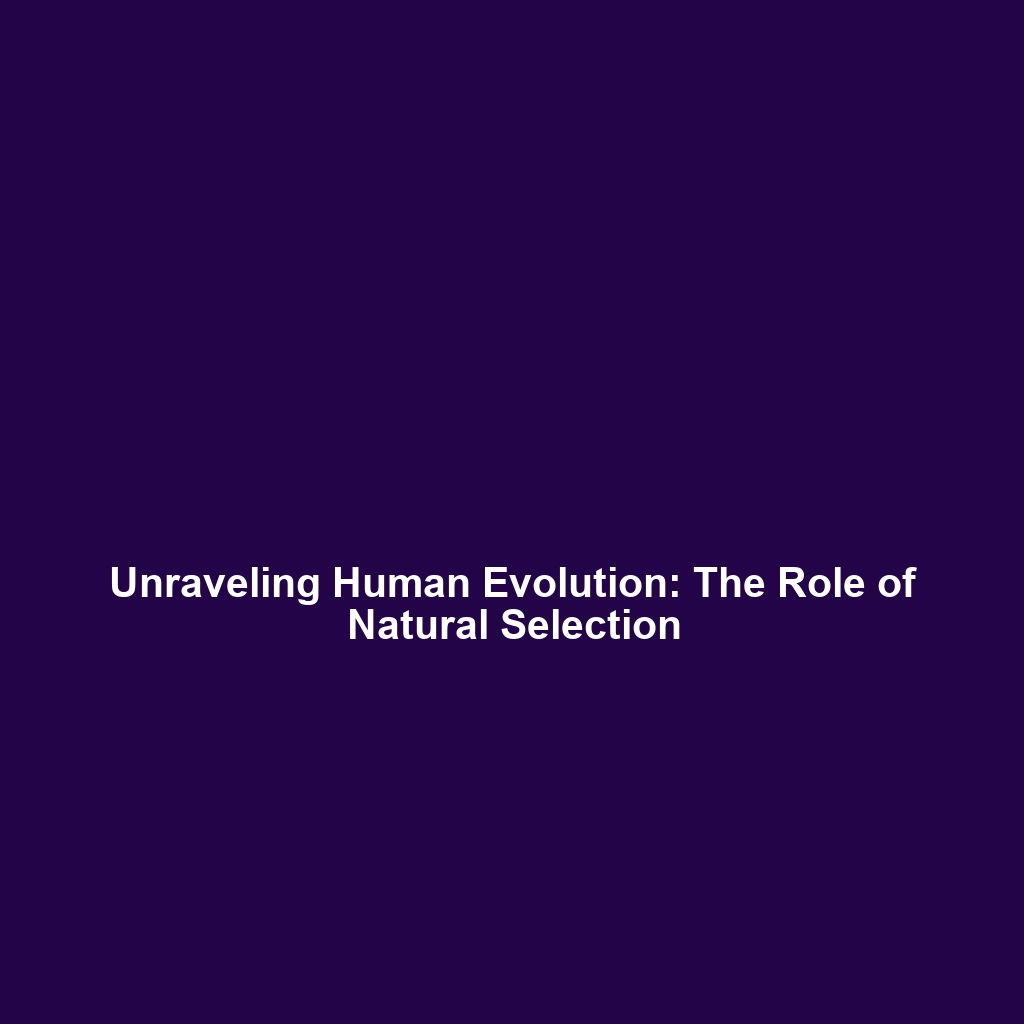Evolutionary Theory and Natural Selection in Human Evolution
Introduction
Evolutionary Theory and Natural Selection are cornerstone concepts in understanding the process of Human Evolution. These theories explain the mechanisms by which species change over time through genetic variation and environmental pressures. The significance of these theories extends beyond mere academic interest; they provide a framework for exploring our biological history, adaptation, and the intricate web of life on Earth. By understanding Evolutionary Theory and Natural Selection, we can better appreciate the complexity of human ancestry and the evolutionary forces that shaped us.
Key Concepts of Evolutionary Theory and Natural Selection
Basic Principles of Evolutionary Theory
The core of Evolutionary Theory is based on the idea that species evolve over generations through changes in inherited traits. These changes can arise due to mutations, genetic drift, and gene flow. Over extended periods, these mechanisms contribute to the diversity of life we see today.
Natural Selection Explained
Natural Selection, a key mechanism outlined by Charles Darwin, posits that individuals with advantageous traits are more likely to survive and reproduce. This leads to the gradual adaptation of species to their environments, driving human evolution as our ancestors adapted to various habitats and challenges.
The Role in Human Evolution
In the context of Human Evolution, these concepts illuminate how early hominins developed traits that distinguished them from other primates, such as bipedalism and advanced cognitive abilities. Understanding these processes allows scientists to trace our lineage and make educated predictions about future human evolutions.
Applications and Real-World Uses
Applications of Evolutionary Theory and Natural Selection are vast, particularly in understanding Human Evolution. Here are a few significant examples:
- Medical Research: Insights from evolutionary biology inform disease management and treatment strategies by examining how pathogens evolve resistance to treatments.
- Conservation Biology: Evolutionary principles are used to develop strategies for species conservation by understanding genetic diversity and resilience.
- Anthropology: Studies of human evolution leverage these theories to uncover the physiological and social adaptations that have shaped our species.
Current Challenges
Despite its foundational importance, the study of Evolutionary Theory and Natural Selection faces several challenges, including:
- Complexity of genetic interactions and environmental impacts.
- Limited fossil records that can obscure our understanding of specific evolutionary events.
- Misinterpretations or resistance to the concepts in educational and public domains, affecting knowledge dissemination.
Future Research and Innovations
Future research in Evolutionary Theory and Natural Selection promises exciting breakthroughs, such as:
- Genomic studies that unravel the complexities of human genetic variation and evolution.
- Advancements in computational biology, enabling simulations that can predict evolutionary outcomes.
- New insights into the impact of climate change on human evolution, highlighting adaptability and resilience.
Conclusion
In summary, Evolutionary Theory and Natural Selection are essential for understanding the journey of Human Evolution. These concepts provide critical insights into our past, inform current applications, and guide future research directions. To delve deeper into the intricacies of human ancestry and the mechanisms of evolution, explore more on our related topics and articles.
This -formatted article provides a structured, informative overview of Evolutionary Theory and Natural Selection within the context of Human Evolution, while also being optimized for SEO through the inclusion of relevant keywords and clear, engaging content.
